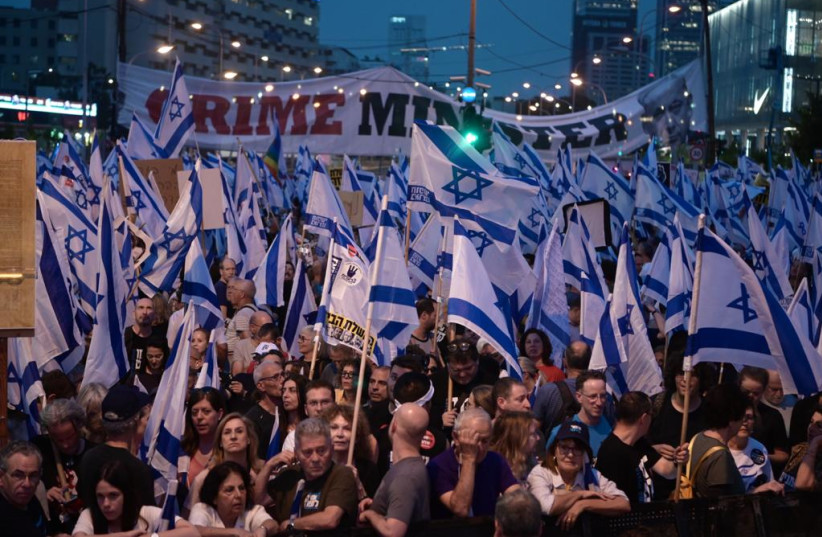What does it mean for Israel to be united? – opinion
Israel is facing unprecedented division. Judicial reforms have resulted in celebrations on the one side and deep anger and opposition on the other. Despite this, I still believe greater unity can become our reality. Therefore, how does the conversation about this complex situation even start?
Constructive dialogue is needed. Without dialogue, realizing the many similarities that exist among the vast majority of us will be highly unlikely. Once we have dialogue we need to focus on the common ground.
Where does one start in order to find common ground between those in favor and those against the reform? Perhaps in acknowledging that unity among Israelis is better than division and stability in Israel is better than instability. And in recognizing that the combination of continuous protests and the continuation of the implementation of reforms have collectively contributed toward decreased stability and decreased unity.
If you agree with the above three points, we have common ground.
How can we achieve unity among Israelis?
“Unity among Israelis” needs further emphasis. Unity doesn’t mean that every citizen needs an identical perception on how Judaism and democracy should co-exist in Israel. Unity means that there is a genuine understanding of the need, and a willingness, to accept Israelis from all sects. Although I believe the majority of Israelis would agree that unity is better than division, we need to ask ourselves a few questions to see if we’re currently even capable of being united.
 Protests against the judicial reform at Kaplan Street in Tel Aviv, May 27, 2023. (credit: AVSHALOM SASSONI/MAARIV)
Protests against the judicial reform at Kaplan Street in Tel Aviv, May 27, 2023. (credit: AVSHALOM SASSONI/MAARIV)How well do we understand the different sects within Israeli society? How often do we engage in dialogue about the varying interpretations of Judaism and governance? To what extent are we willing to compromise and accept the existing differences?
As the protests and reforms continue in the current trajectory, the lack of understanding, dialogue and willingness to compromise for the sake of unity is highlighted.
Although it’s a complex situation, if we truly aspire to be united, these questions need to be answered. Ultimately the coalition in power is responsible for the state of the nation. The past six months should prove that the protesting is unlikely to stop until voices are heard and therefore I believe the current coalition has more to lose in this situation.
Five elections in the past four years highlights that instability leads to governments collapsing and to new elections. Although the future cannot always be predicted, if the lack of unity continues, the next elections, officially scheduled for October 2026, could occur a lot sooner.
However, even if the current government collapses and the opposition comes into power, there will just be a power shift. A change in power does not imply increased unity – which is ultimately what is needed.
Chaos often precedes calm. The situation does not need to become more chaotic than it currently is. The individuals in power have shown no signs of uniting the nation.
For the sake of the State of Israel, I believe it’s up to those fighting for the well-being of our country to not only lead the change, and understand what being united truly means, but to back this up with action. Engage with Israelis from all backgrounds, ask questions, show respect, and demonstrate a willingness to compromise.
Historically, it has been the citizens, not just the leaders, that have collectively had significant influence in building our state. For this reason, may every Israeli remember that unity is not merely an abstract ideal; unity requires active engagement, open and honest communication, respect and a commitment to finding a common ground.
I have full faith in the people of this nation.
The writer is a Shlomo Argov Fellow specializing in Leadership and Diplomacy at Reichman University. He is an oleh hadash, and has participated in award winning research focusing on the secular-ultra Orthodox divide in Israel.





Comments are closed.